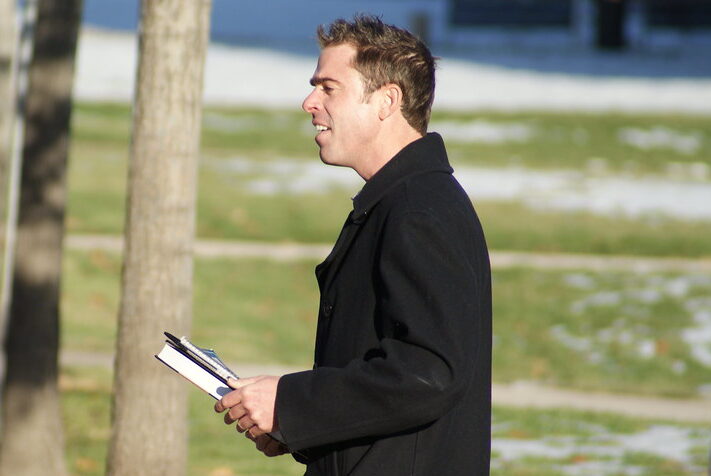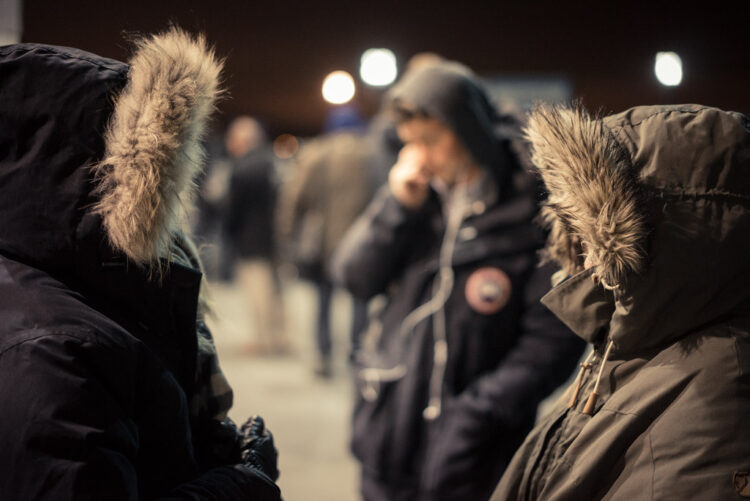
Insecurity doesn’t always look like someone quietly doubting themselves. Sometimes, it hides behind overconfidence, constant bragging, or even silence. People who feel unsure about their worth often show it in subtle but telling ways. If you’ve ever wondered why someone acts a certain way, these 15 signs can help you spot insecurity hiding beneath the surface.
They constantly seek compliments or approval.

It’s not just wanting to be noticed—it’s needing it to feel okay. They might always ask, “Was that good?” or fish for reassurance, even when there’s no reason to doubt themselves. They depend on others to feel secure because they don’t believe in their own value deep down. The need for constant validation shows that their confidence isn’t coming from within—it’s borrowed from whoever is nearby.
They put others down to feel better about themselves.

Insecure people often criticize others, not because they truly think less of them but because it makes them feel more important. If someone is always pointing out flaws in others, they’re usually trying to distract from their own. It’s a defense mechanism that hides their deeper fear of not measuring up, and most of the time, it’s done without realizing how transparent it actually is.
They over-explain themselves all the time.

You’ll notice they give long, unnecessary explanations for small things as if they’re trying to justify their every move. Even when no one asks, they feel the need to explain so people won’t judge them. This habit comes from a fear of being misunderstood or seen as wrong. They don’t trust that others will accept their choices unless they defend them in detail.
They brag too much—even about small things.

Bragging can be a cover for deep insecurity. If someone constantly talks about their successes, possessions, or how great they are at something, it may not be confidence—it’s often the opposite. They’re trying to convince others (and themselves) that they’re good enough. People who are truly confident don’t feel the need to show off. Insecure people do it to feel like they matter.
They compare themselves to others constantly.

They’re always measuring their life against someone else’s. Whether it’s success, looks, or relationships, they can’t stop looking sideways. Instead of focusing on their own growth, they focus on where they rank. This constant comparison makes them feel like they’re always behind, and even when they seem ahead, it’s never enough. They don’t feel secure in their own path, so they need others as a yardstick.
They struggle to accept compliments.

Instead of saying “thank you,” they brush off compliments or respond with self-deprecating comments. It might sound humble, but often it’s insecurity talking. They don’t believe the good things people say about them, so they reject or downplay it. A secure person can accept kind words. An insecure one deflects them because they don’t see what others see.
They’re overly defensive when given feedback.

Even gentle, helpful feedback feels like a personal attack. Instead of listening, they shut down, make excuses, or get upset. That reaction comes from a fear of being exposed or seen as flawed. Insecure people often confuse critique with rejection. They struggle to separate who they are from what they do, so any suggestion feels like someone’s questioning their worth, not just their actions.
They avoid eye contact in conversations.

This one isn’t always obvious, but insecure people often struggle to hold eye contact because they feel nervous, ashamed, or unworthy. Looking someone in the eyes makes them feel seen—and they may not be comfortable with that. It’s not always about rudeness or shyness. It’s often about feeling unsure of how they come across and being afraid of judgment, even during normal conversations.
They try too hard to please everyone.

Insecure people often say “yes” when they want to say “no.” They overextend themselves, avoid conflict, and do things just to be liked. Deep down, they’re scared that if they disappoint someone, they’ll be rejected. Their self-worth depends on how others feel about them. So they become people-pleasers, not out of kindness, but from a deep fear of not being accepted.
They fear being alone with their thoughts.

Silence makes them uncomfortable because it leaves space for doubt and self-criticism. Insecure people often need noise, distractions, or company to feel okay. They may fill every moment with social media, TV, or texting just to avoid sitting with themselves. Alone time feels like a mirror—and if they don’t like what they see, they’ll do anything to avoid looking into it.
They apologize even when they’ve done nothing wrong.

You’ll hear them say “sorry” for things that don’t need an apology—like asking a question or existing in someone’s space. They fear being a burden or being seen as annoying, so they over-apologize to stay safe. It comes from the belief that their presence is somehow a problem. This constant apologizing is a quiet way their insecurity shows itself in everyday life.
They need to be in control to feel safe.

Insecurity often hides behind the need to control everything. If plans change or things feel uncertain, they get anxious or upset. That need for control isn’t about being organized—it’s about fearing what happens if they aren’t in charge. They worry that if they let go even a little, everything will fall apart. Control becomes their way of keeping fear and self-doubt in check.
They act overly confident in public but crumble in private.

Insecure people often wear bold masks. They might act charming, loud, or overly sure of themselves, but behind closed doors, their confidence fades. That gap between how they appear and how they actually feel is wide. They’ve learned to perform a version of confidence to fit in or impress, but the truth shows when they’re alone or in emotionally honest moments.
They hold onto toxic relationships out of fear.

Insecurity makes people believe they don’t deserve better. They’ll stay in unhealthy friendships or relationships because they’re afraid of being alone. They may settle for being treated poorly to avoid the fear of not being wanted. That willingness to accept less than they deserve isn’t because they don’t see the problem—it’s because they think it’s all they’re worth.
They can’t celebrate others without feeling threatened.

When someone else succeeds, they feel small instead of happy. Insecure people struggle to cheer others on because someone else’s success feels like their failure. It’s not jealousy—it’s fear. They’re scared there won’t be enough room for everyone, so every win that’s not theirs feels personal. A confident person can be happy for others. An insecure person wonders what it says about them.

